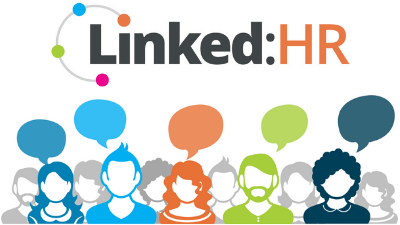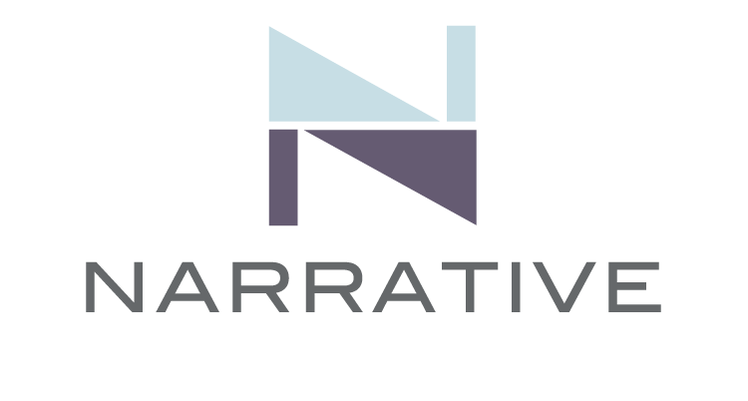|
We are finally close to 2021! Many of us cannot wait to celebrate the end of this chaotic, often lonely, and heart-breaking year. At this time of the year, we often plan our New Year's resolutions. Will I lose weight? Learn a new language? Finally, finish an article or a book I started writing?
Today, I ask Linked:HR members two (hopefully provocative) questions:
Life is messy. We work, support our families, handle personal and health crises. Often, our days are too busy for any of us to worry about legacies. Those of us lucky enough to be relatively young and healthy feel we can postpone those thoughts for later. There will always be another year. Another opportunity. Another go. Today, I hope we pause and think of ways to grab the next year - and make it matter. Happy New Year, colleagues! Happy Growing! Dr. Cris Wildermuth Community Chair, Linked:HR Find out about Drake University's Master's in Leadership at https://www.drake.edu/leadership/ Follow me on Twitter: https://twitter.com/DrWildermuth Follow me on YouTube: https://www.youtube.com/drcriswildermuth
0 Comments
This year was filled with inconsistencies. We faced crushing isolation and learned that we needed each other. We missed our families and found new ways to connect. We found new ways to work. We found new ways to live.
Some of us were lucky. We didn't lose a loved one to the pandemic. We didn't get sick or if we did, we got better quickly. We still get to work. Our parties may be tiny, but there is a nice meal waiting for us on our holy days. Others had a year filled with loss and grief and pain. Loved ones caught the virus and got seriously sick or died. Many lost their jobs. Others lost their businesses and had to lay off long-time employees. Many don't know how they'll pay their next rent, their next mortgage, their most basic bills. Any time I complain of not having my favorite movie outings, not teaching face-to-face, not seeing colleagues at the office, I remember what I was spared. And, as I reflect on this crazy year and think of the next one, I remember the lessons I learned.
Funny. As I look at my list I see nothing about "being productive," or "writing more papers" or "becoming a better professional." My list is about strengthening my bonds with fellow humans, it's about caring and living and breathing. So what about next year? Will we immediately forget what we went through and go back to business as usual? I hope not. I hope 2021 becomes the year I choose to embrace and treasure life - just being alive. I hope I remember what mattered. I hope I remember to breathe. Happy New Year, fellow humans. Happy Year of Life. Ever since I can remember, I loved writing. I started writing stories when I was little and kept writing as a teenager. For my 16th birthday, I got a brand-new white Olympia typewriter. I still remember my pride. The typewriter font was square and modern; it made me feel like a published author.
What happened to my writing joy? First, writing became an obligation. Writing is no longer my choice or outlet, but something I have to do. Second, writing became formulaic. Introduction. Literature Review. Methods. Results. Discussion. Implications. Conclusion. There is a formula, and I must follow it if I have any hopes of publication. After years of strict rules and formulae, I started hating writing. Eventually, I also started doubting my abilities, crushed by rejections and boredom. Recently, my daughter encouraged me to just start writing. She has a system; writing for 20 minutes at a time, non-stop. She lets her creativity guide her fingers. With my daughter's encouragement, I rediscovered my lost joy. And as I find, once again, the excitement of the written word, I wonder what leadership lessons I can take from this experience. My question: How do leaders crush joy? Crush their confidence. Mihaly Csikszentmihalyi, the brilliant author of Flow, suggests that people need an optimum balance of challenges and resources to feel in a "state of flow." That "optimum balance" lies in the magical space between boredom and stress. We need enough challenge to keep growing and enough resources to feel our case is not hopeless. The good news: Flow work is joyful. Artists, performers, and people who feel passionate about their work, often report flow experiences. Leaders: If you crush someone's confidence in their abilities, you reduce their perceived resources. The challenges, in comparison, may feel unsurmountable. People will "go through the motions" to complete their work. The results, while adequate, are unlikely to be either innovative or exciting. Beef up the rules. Think of a child playing. There is joy in experimenting, trying, moving things around. Now think of yourself learning how to play a board game or experimenting with a new app. Do you read every single instruction? How fast do you just start tinkering and figuring out new rules as you go along? Leaders: Joy and freedom go hand in hand. People crave independence, the ability to fly without an exact destination. Give me too many rules, and you will crop my wings. The wonder of discovery will abandon me. Emphasize control. The word management originates from "controlling a horse"(source: https://www.etymonline.com). Ouch. I'm not a horse; I'm a free spirit who needs air to breathe and sky to spread my wings. The more you try to control me, the less I want to fly. Leaders: Relinquishing control is scary. But if you want to bring joy back to the workplace, you must trust your people to do what they need to do. The more you try to "handle people," the more you treat them like mindless horses. Leaders do not take horses to a set destination. They share a sense of purpose with their teams and run along with them. Silence my voice. As an academic writer, I must support everything I say with expert quotes and research. In plain English, nothing I say matters until I find someone else - preferably a highly published author - who said it too. I'm not suggesting we should not support our writing with examples and research data. Instead, I argue that there is room, even in academic writing, to share our own experiences. To use ourselves as laboratories. Leaders: The more you silence someone, the less engaged they are. People need to speak, to express themselves, to feel heard. Reduce (or eliminate) the rewards. My love of writing was intrinsic, requiring neither pay nor extra incentives. Most authors, however, hope that someone will read their work. After all, we write to share our thoughts and ideas and to connect to others. Academic publishing, however, is highly competitive. Upper-level journals accept 15% of the submissions. The real prizes - the top journals one often needs for tenure and promotion - take 5 to 10% of the proposed articles. Thus, much of what we write goes somewhere to die. Over time, we learn "what works" - but proposals "that work" may no longer feel joyful. Leaders: Rewards should not feel like buying a lottery ticket. They must be obtainable. Keep in mind that when I use the word "reward," I do not mean a gift, a prize, or a pay increase. A reward may simply be the ability to be proud of what one does, the opportunity to share one's work with one's peers. In Summary: To promote a joyful work environment, encourage confidence, reduce control, let go of unessential rules, and ensure that rewards are possible. Of course, remember, as you consider those tips, that people have unique needs. What feels like "too much control" or "too many rules" to some may be a "reasonable structure" to others. Also, rewards are individual. Ask your employees what gives them joy. A last thought. I'm not ignoring reality. Yes, we must follow some rules, and yes, managers must have a certain amount of control. The key is to balance the unavoidable with the ideal. Don't let unnecessary rules crush the magic of your employees' creative spirit. A recent Opinion piece by Joseph Epstein questioned Dr. Jill Biden's use of her title. Dr. Biden has an Ed.D., a doctorate in Education. Incidentally, that is the same title I hold. Mr. Epstein asked: "Madame First Lady—Mrs. Biden—Jill—kiddo: a bit of advice on what may seem like a small, but I think is a not unimportant matter. Any chance you might drop the “Dr.” before your name?"
Not surprisingly, Mr. Epstein's piece generated considerable controversy. First, he addressed Dr. Biden as "kiddo." Second, Mr. Epstein suggested that modern doctorates were not nearly as hard as they used to be when "water and glass were (near the examination rooms) for the candidates who fainted." Third, he suggested that Dr. Jill Biden's accomplishments paled in comparison to the "larger thrill of living for the next four years in the best public housing in the world as First Lady Jill Biden." I will ignore, for now, the absurdity of addressing a 69-year-old woman as "kiddo" or the suggestion that nothing Dr. Biden accomplished in her life is more important than being President-elect Joe Biden's wife. I will also set aside Mr. Epstein's disparaging remarks on how easy doctorates are these days because we no longer have examinations in Greek or Latin, a comment made even more absurd by the fact that Mr. Epstein holds a bachelor's degree and an honorary doctorate. What I will comment, though, is the importance of titles. I will argue that titles matter. Role Behavior Theory is defined as "the science concerned with the study of behaviors that are characteristic of persons within contexts" (Biddle, 1956, p. 4). Translation: Role theory explores how our roles, or the parts we play in society, affect the way we behave. Human beings tend to conform to social expectations. For example, as a professor, I am expected to teach my students and grade their work fairly. My role expectations, however, go beyond the classroom. For example, if I post something on social media, I try to keep a certain level of decorum. I am still my students' professor, even outside of class, until they graduate. My students, on the other hand, know the social expectations for their roles. They know how far to push their point and when to accept a professor's decision. They also know how to appeal decisions that feel unfair. Would my role as a professor disappear if my students called me "Cris"? No. In fact, that's how most students call me. However, a few caveats: First, my credentials and title appear on my syllabus and on the university communications. Second most of my students are older, as I primarily teach graduate school. My younger undergraduate students typically address me as Professor or Dr. Wildermuth. Third, none of my students or even my alumni would address me as "kiddo." I am still Professor or Dr. Wildermuth in their eyes, even if the "Professor"or "Dr." titles are omitted in informal conversations. A key concept from Role Theory helps explain why titles matter: cue clarity. Clue clarity refers to the signals that identify a person as a role bearer. For example, I send a "signal" when I stand in front of the class and place my books on the professor's desk. Medical doctors send signals when they wear laboratory coats. CEOs send signals when they sit at the head of the table during a meeting. Professionals send signals by the clothes they wear, the place they work - and yes, by the titles they use. Mr. Epstein's piece ignored the importance of cue clarity. He also ignored a basic rule of respect: Treat others the way they want to be treated. Dr. Jill Biden earned her degree, earned her title, and prefers to be called Dr. Biden. By disrespecting her wishes, Mr. Epstein is giving us a cue of his own - and it's not a good one. For Human Resource professionals, I see two interesting points of discussion. First, how have you chosen the titles used in your organization? Who is called a "Director"? Who is a "Manager"? How are non-managerial employees called? If you have never given a thought to this issue, you should. Position titles provide cues to other employees and to your clients. Second, how do you encourage your employees to treat people respectfully? How do you promote the idea that people are the best judges of how they should be called or treated? Have you ever:
If you answered "yes" to any of the questions above, you engaged in HR self-deception. You made your boss happy. Your boss made the Board happy. The Board made the investors happy. The original problems, however, never changed. In fact, the issues may have gotten worse. In "Leadership and Self Deception" (Arbinger Institute, 20150), you read the story of a 19th-century obstetrician intent on decreasing his ward's mortality rate. The OB discovered a problem: The hospital doctors also worked on cadavers and brought infection to their own patients. The moral of the story: Sometimes, we think we are solving problems, but we aren't. Instead, we could cause harm. My questions to you today: What examples of HR self-deception could you share? Dr. Cris Wildermuth Linked:HR Community Chair Master of Science in Leadership Development, Drake University PS: Drake University is opening another SHRM certification class for the spring of 2021. Interested? Click on the button below. I'll be honest: This has not been the best of times. I am behind with my corrections, handled unexpected administrative work, struggled to finish my research, and dealt with difficult meetings. Like everyone else, I am tired of this endless pandemic. Work overload, conflict, and insufficient emotional resources culminated in so much exhaustion that my brain just said: "stop."
I have two questions for you today.
The second question is critical. People are unlikely to speak up. They may tell themselves they should be grateful they have a job at all. They will continue working, semi-numb, and smile professionally during Zoom meetings. They will survive but won't thrive. One of the first things I tell my students in any class is: "Do not suffer in silence." I want my students to let me know if they struggle, and if they need my help. My point: Your employees could be *suffering in silence.* What should you do about it? I am looking forward to your comments, your honesty, and your ideas. Happy Leading!
I have been thinking about collaboration and how it connects to adaptive leadership. The question in my mind: Why don't we collaborate? Shouldn't it be natural? After all, the logical behavior is to help one another to achieve common goals.
Of course, it's hardly that easy. First, our reward systems often do not favor collaboration. We are not rewarded for collective efforts, but for individual ones. By the time we realize we were playing violin on the Titanic, the time to collaborate is past. Second, collaboration may feel like a loss. Loss of time, of efficiency, of focus on our own goals. And remember - only our goals matter. We were not socially conditioned to worry about other people's goals unless these people are deeply connected to us. For example, we may help our family members or close friends but not a work colleague. I am curious as to your thoughts. How does collaboration show up in your place of work? Is it real or just "for show"? And if collaboration, as a value, is "just for show" what can we do to change our perspective? Happy Dream Making!
Ngozi Igbokwe, Sarah Smith, and Marguerite Wildermuth, a group of Drake University students, will present a leadership case analysis at the upcoming International Leadership Association (ILA) virtual conference.
My questions this week:
Looking forward to your answers. Happy Learning! Dr. Cris Wildermuth, SHRM-SCP Associate Professor, Drake University Important Announcements
A prominent CEO recently wrote: "While it might sound like an excuse, the unfortunate reality is that there is a very limited pool of black talent to recruit from" (https://bit.ly/2HqfuNg).
Of course, the comment caught our attention. A quick search led me to dozens of reports by major publications, politicians' reactions, and lively debates on social media. Even though the CEO has since apologized, his statement is worthy of further discussion. I have four critical questions:
My thought as I write the last question: The CEO's statement illustrates a web of practices, beliefs, and values. That web includes who participates in meetings that define and evaluate talent, where we look for talent, and how we reward recruiting professionals. In other words: The problem is systemic and tenacious. What do you think? Most importantly, what should HR leaders DO? I am eager to hear your comments. Happy Learning, colleagues! Dr. Cris Wildermuth Community Chair, Linked:HR Associate Professor, Drake University Would you like to strenghten your leadership competencies? Consider Drake University's Master of Science in Leadership Development! You may complete up to 8 courses online and 2 in a residency week on campus. We are accepting applications for the spring semester. For information, please visit http://bit.ly/MSLDDrake. "What will you do with the power you were given?" Dr. Patrick Pauken, an outstanding professor from my Alma Mater, Bowling Green State University, used to ask us this question in his ethics course. I often start my own ethics courses this way.
This question is relevant as we get closer to the presidential election in the United States. A case in point: Is it ethical for organizations to support a political candidate openly? Should the CEO speak on behalf of a candidate? Should a store post a political banner? And does it matter if the support is covert - for example, a political donation? Some might say that NOT doing so means silencing our voices. Thus, speaking on behalf of "Candidate X" is not only allowed, but it's also a moral obligation. However, when CEOs (or anyone in a position of authority, including professors) "speak up," they exercise their power. Employees could feel obligated to agree. In that case, "speaking up" could mean coercion. An important point: I am not asking if making political statements or donations is "legal." I am asking if it's ethical. HR professionals and leaders: What do you think? |
Dr. Cris WildermuthDr. Cris Wildermuth is Linked:HR's Community Leader and an Associate Professor at Barry University. You may find out more about Dr. Wildermuth's leadership development, ethics, and intercultural development consulting practice at THIS PAGE. Archives
March 2021
Categories
All
|
Thank you to our Sponsors!
Would you like to support Linked:HR? Consider becoming one of our sponsors! Your logo and services will be displayed in our page. Additional business services are available to our sponsors. Please CLICK HERE for additional information.
|
|





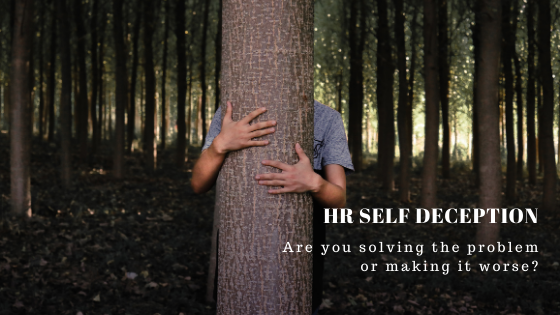
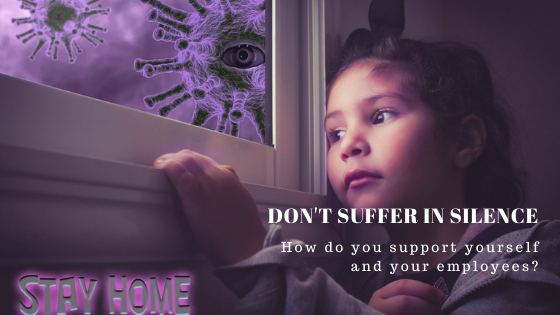



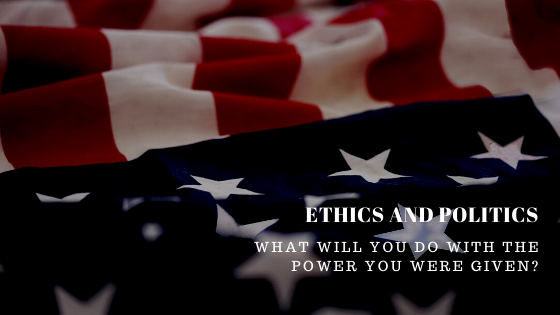

 RSS Feed
RSS Feed
